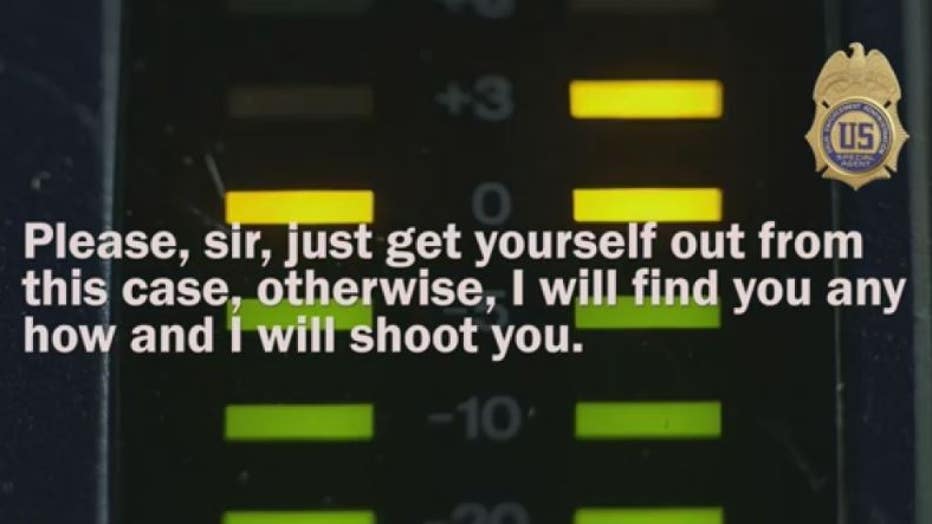DEA impersonator phone calls on the rise - what everyone should know
FOX 2 - The Drug Enforcement Administration says they caught one con artist in the act impersonating an agent trying to steal someone's money.
DEA warns of potential scams by people impersonating them
The Drug Enforcement Administration says they caught one con artist in the act impersonating an agent trying to steal someone's money.
A newly released phone call shows the length a scammer will go:
"You should not be doing this you know you're wrong,"
Scammer: "You can check me online, I can send you my badge picture."
"I actually have the DEA here, the actual DEA on the phone,"
The DEA says the man didn't let up even after a real agent listening in, called him out.
Agent: "If you're trying to tell me you're part of the DEA and (your attempted scammer victim) was involved in something, I would know about it. So you need to cease and desist."
Scammer: "Please sir, get yourself out from this case, otherwise I will find you anyhow and I will shoot you. Better do you keep yourself away from this matter."
Brian McNeal from the Detroit Division of the DEA says these sophisticated scams have been going around for the past couple of years.
"Like you and I, we have a job," McNeal said. "And this is their job, unfortunately. Their job is to rip people off."
He says bad actors will get names, badge numbers, and pretend to be agents. McNeal says it is a problem across the country.
"They like to prey on the elderly who sometimes are susceptible to these things and they scare you into giving away personal information whether that's bank account information and credit cards," he said. "Sometimes they even take gift cards."

McNeal says people call him about scams like this at least three times a month. He says some of these criminals are from the United States, others are foreign bad actors.
Meanwhile, McNeal wants us to know they notify people about official investigations either in person or with a letter. never over the phone.
"They are aggressive that's just not how DEA or any federal law-enforcement agency operates," McNeal said. "We won't call and demand personal information or money from you, we just don't operate in that fashion."
Anyone receiving a call from a person claiming to be with DEA should report the incident to the FBI at www.ic3.gov. The Federal Trade Commission provides recovery steps, shares information with more than 3,000 law enforcement agencies and takes reports at reportfraud.ftc.gov. For any victims who have given personally identifiable information like a social security number to the caller, can learn how to protect against identity theft at www.identitytheft.gov.
Reporting these scam calls will help federal authorities find, arrest, and stop the criminals engaged in this fraud.

